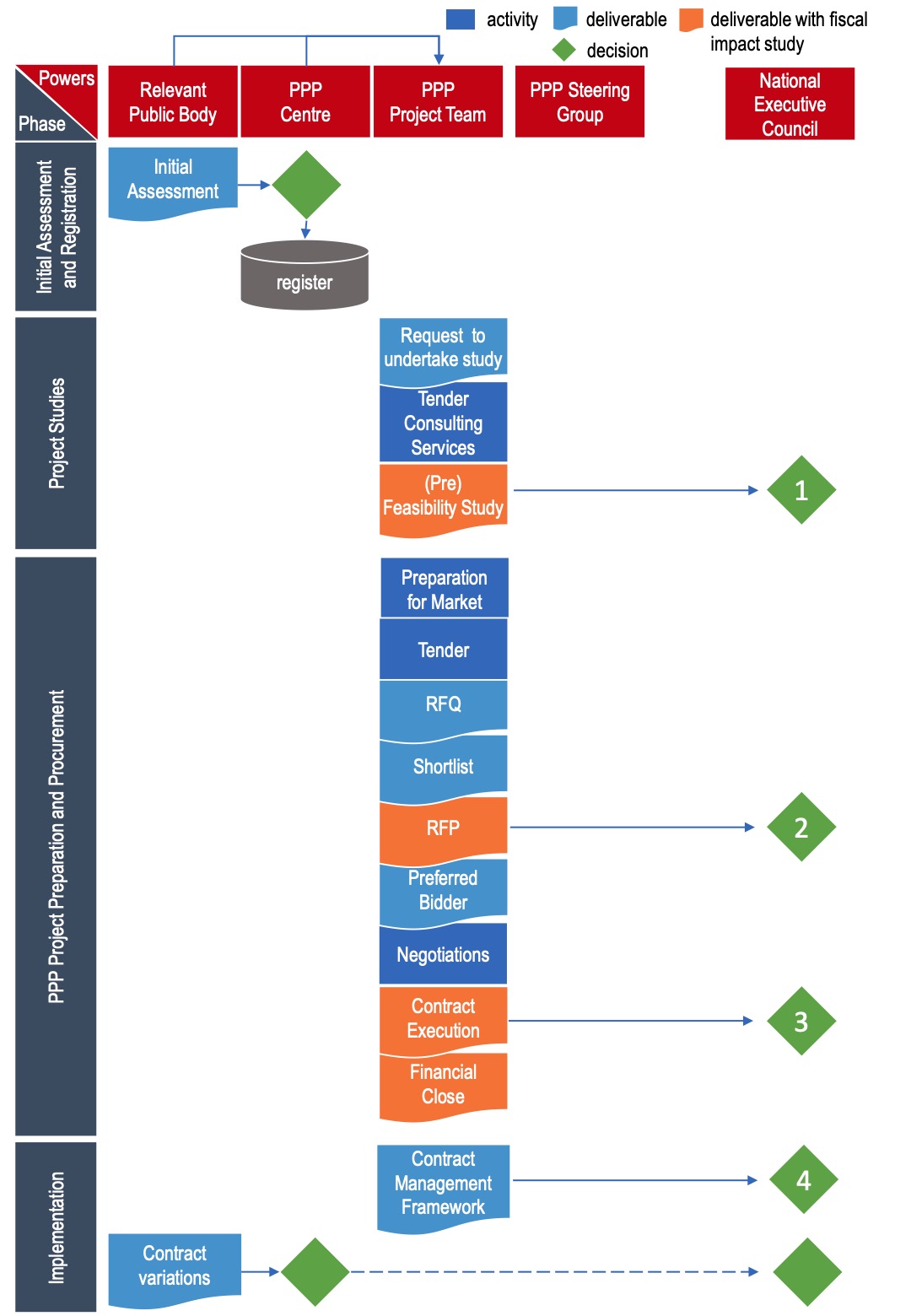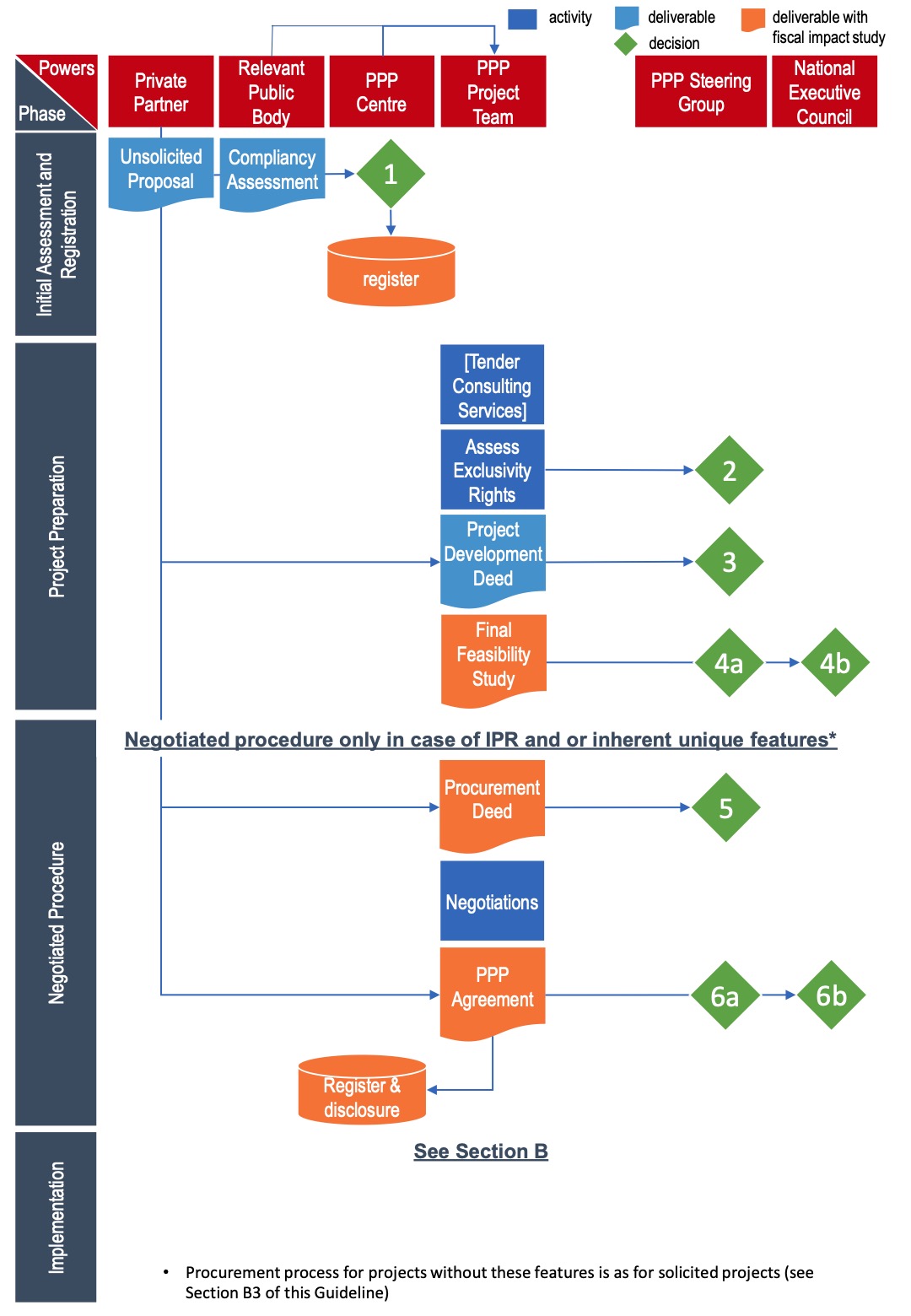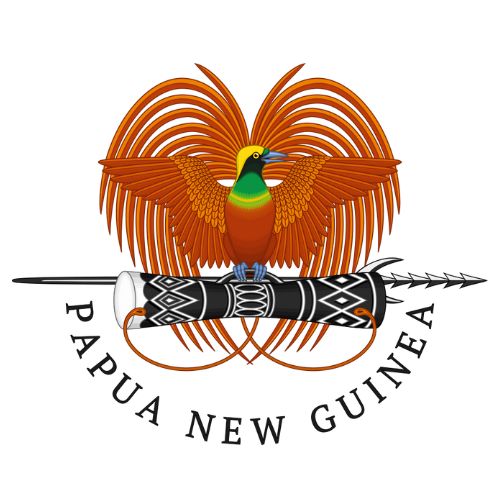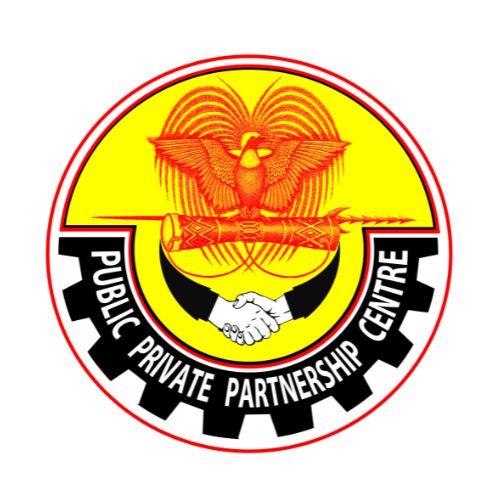WELCOME TO the PPP CEntre
the PPP Process in Papua New Guinea
The PPP Process in Papua New Guinea ensures a structured and systematic approach designed to facilitate successful public-private partnerships that drive infrastructure development and enhance public services. The PPP Process begins with the identification of potential projects aligned with national development priorities, followed by detailed feasibility studies and cost-benefit analyses to ensure economic viability, project delivery and project monitoring and evaluation.
Once a project is deemed feasible, the PPP project moves into the procurement phase, where competitive bidding and transparent selection processes are employed to attract competent private sector partners. Upon selection, a formal contract is negotiated, detailing the roles, responsibilities, and risk-sharing mechanisms between the public and private entities.
For the PPP Centre, the implementation phase involves close monitoring and performance evaluation to ensure that the project meets its objectives and delivers value to the stakeholders, while the private sector undertakes their deliverables against the project’s contractual obligations. Throughout the entire PPP process, the PPP Centre provides guidance, oversight, and support, ensuring adherence to the PPP Act and the PPP Regulations, thereby fostering a collaborative environment for sustainable infrastructure development for Papua New Guinea.
Solicited Proposals
The solicited procedure for proposals is a structured process initiated by the government to seek private sector participation in public-private partnership (PPP) projects. Under this approach, the government identifies and prioritises specific infrastructure or service needs, which are then developed into comprehensive project proposals. These proposals are publicly advertised, inviting qualified private sector entities to submit their bids. The process ensures a transparent, competitive, and fair environment for all participants, promoting accountability and fostering investor confidence. Key steps include the preparation of feasibility studies, the issuance of request for proposal (RFP) documents, and the evaluation of submissions based on clearly defined criteria, such as technical expertise, financial capacity, and value for money.
By following the solicited procedure, the government ensures that PPP projects are aligned with national priorities and provide optimal benefits to the public. This method also allows for thorough scrutiny of potential partners, ensuring that only capable and credible entities are selected. Moreover, the competitive nature of the process drives innovation and cost efficiency, as bidders propose solutions that maximise project effectiveness while minimising risks. The solicited procedure exemplifies the government’s commitment to transparency, good governance, and sustainable infrastructure development in Papua New Guinea.

Unsolicited Proposals
The unsolicited procedure allows private sector entities to propose PPP projects to the government independently, without an initial government request. This approach is particularly valuable in identifying innovative solutions and addressing infrastructure gaps that may not yet be on the government’s radar. Under this procedure, a private proponent submits a detailed project proposal, including technical specifications, financial plans, and potential benefits. The government then evaluates the proposal’s feasibility, alignment with national priorities, and potential value for money. If deemed viable, the project may proceed to further stages of development, including public competitive tendering or direct negotiations, depending on the circumstances.
While the unsolicited procedure encourages private sector innovation and proactive engagement, it also requires strict safeguards to maintain transparency and fairness. Clear guidelines are in place to ensure that any project brought forward undergoes rigorous assessment and is subjected to a competitive process to avoid preferential treatment. The unsolicited procedure balances flexibility and structure, enabling private initiatives to contribute meaningfully to public infrastructure while upholding the principles of accountability and value optimisation. This process helps stimulate creative partnerships and brings fresh opportunities for development in Papua New Guinea.


